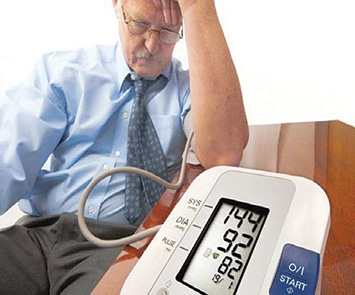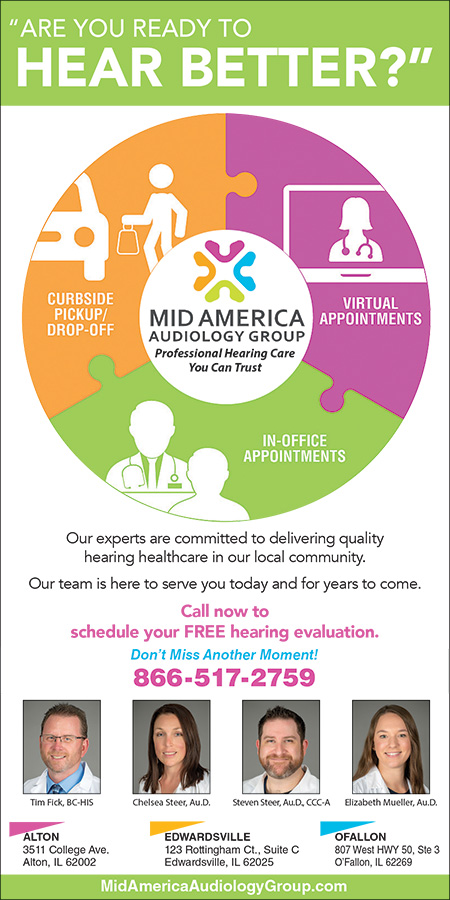 Stress over the pandemic and daily news about record-setting COVID-19 outbreaks have affected our sleep, changed how we work and even taken a toll on our waistlines. But what about other vital signs like our blood pressure?
Stress over the pandemic and daily news about record-setting COVID-19 outbreaks have affected our sleep, changed how we work and even taken a toll on our waistlines. But what about other vital signs like our blood pressure?
Has yours gone from perfect to slightly problematic within the last year or so? You’re not alone. This has been a common occurrence during the pandemic.
On Dec. 6, 2021, a research letter was published in the American Heart Association’s (AHA) Circulation journal. The letter, titled, “Rise in Blood Pressure Observed Among US Adults During the COVID-19 Pandemic,” revealed the results of a study done by Cleveland Clinic and Quest Diagnosis. This study took a closer look at how recent events might have caused slight upticks in the blood pressures of participants in a variety of employee wellness programs across the country.
Participants needed to have their blood pressure taken by a healthcare professional for each year of the study (2018-2020). Researchers also included 2018 numbers for a better comparison of pre-pandemic blood pressure levels to pandemic ones. Of the 464,585 participants, about 54 percent were women and the average age was 46.
BLOOD PRESSURES ROSE IN 2020
The study showed no significant differences in blood pressure between 2019 and January to March of 2020. From April to December of 2020, blood pressure numbers notably increased as compared to that same period in 2019. Changes ranged from 1.10 to 2.50 millimeters of mercury (mmHg) for systolic blood pressure and 0.14 to 0.53 mmHg for diastolic blood pressure.
These increases were seen among men and women of all ages and races. However, noticeable overall spikes in blood pressure occurred with women, while older people saw changes in systolic numbers. Some younger participants experienced changes in their diastolic numbers, as well.
The lead author for the study said that while it doesn’t have all of the granular data, the results still reveal a great deal about how the pandemic disrupted our health and wellness routines. This even included medication use.
“About half the population in the study had a diagnosis of hypertension, so those participants were likely taking some form of medication. We also know that other studies suggest that people didn’t fill their prescriptions regularly. That was a factor in addition to lifestyle changes. But it’s most likely both more than anything else.”
COULD MAKE COVID-19 WORSE
While a 1.1 or 2.5 mmHg increase might not seem like much on an individual basis, it can turn into a huge problem if everyone in the country is seeing those changes. And if left uncontrolled, high blood pressure can lead to an increased risk for strokes, heart attacks, kidney disease and other health threats.
Stress could have slightly contributed to the elevated numbers. Elevated sympathetic activity, or periods when the sympathetic nervous system gets revved up, can increase blood pressure in some people for a short time. However, for some individuals, that can be a more chronic issue that ultimately leads to elevated blood pressure. Elevated blood pressure once in a while because of a stressful situation is not particularly harmful. But chronically elevated blood pressures are worrisome.
While the study didn’t examine this, the Centers for Disease Control and Prevention (CDC) has stated that high blood pressure could make you more likely to get severely ill should you contract COVID-19.
The American Heart Association says that elderly people with coronary heart disease or high blood pressure may be more susceptible to the coronavirus and more likely to develop more severe symptoms. This is also why it’s so important to make sure that your blood pressure is under control and that you’re checking in with your doctor as recommended.
SYMPTOMS OF HIGH BLOOD PRESSURE
High blood pressure doesn’t tend to cause symptoms so it’s always good to know where you stand. In addition to having your healthcare provider check it regularly, you can monitor it as well with a home blood pressure monitor.
Here are the ranges to be aware of:
- Under 130/80 mmHg is normal.
- 130-139/OR diastolic between 80 and 89 mmHg indicates Stage 1 hypertension.
- 140/90 mmHg or higher indicates Stage 2 hypertension.
- 180/120 mmHg or higher indicates a hypertensive crisis and requires emergency care.
MANAGING HIGH BLOOD PRESSURE
The pandemic has been going on for almost two years now and we don’t know when it’s going to end. But we do know that uncontrolled hypertension and elevated blood pressure over the long term increases cardiovascular risk, said the lead researcher in the study.
It all comes down to lifestyle changes. We know the pandemic has stressed us out, cut into our sleep and most likely made us stress eat or drink a little more. By cleaning up our acts, we can help keep our blood pressure under control.


